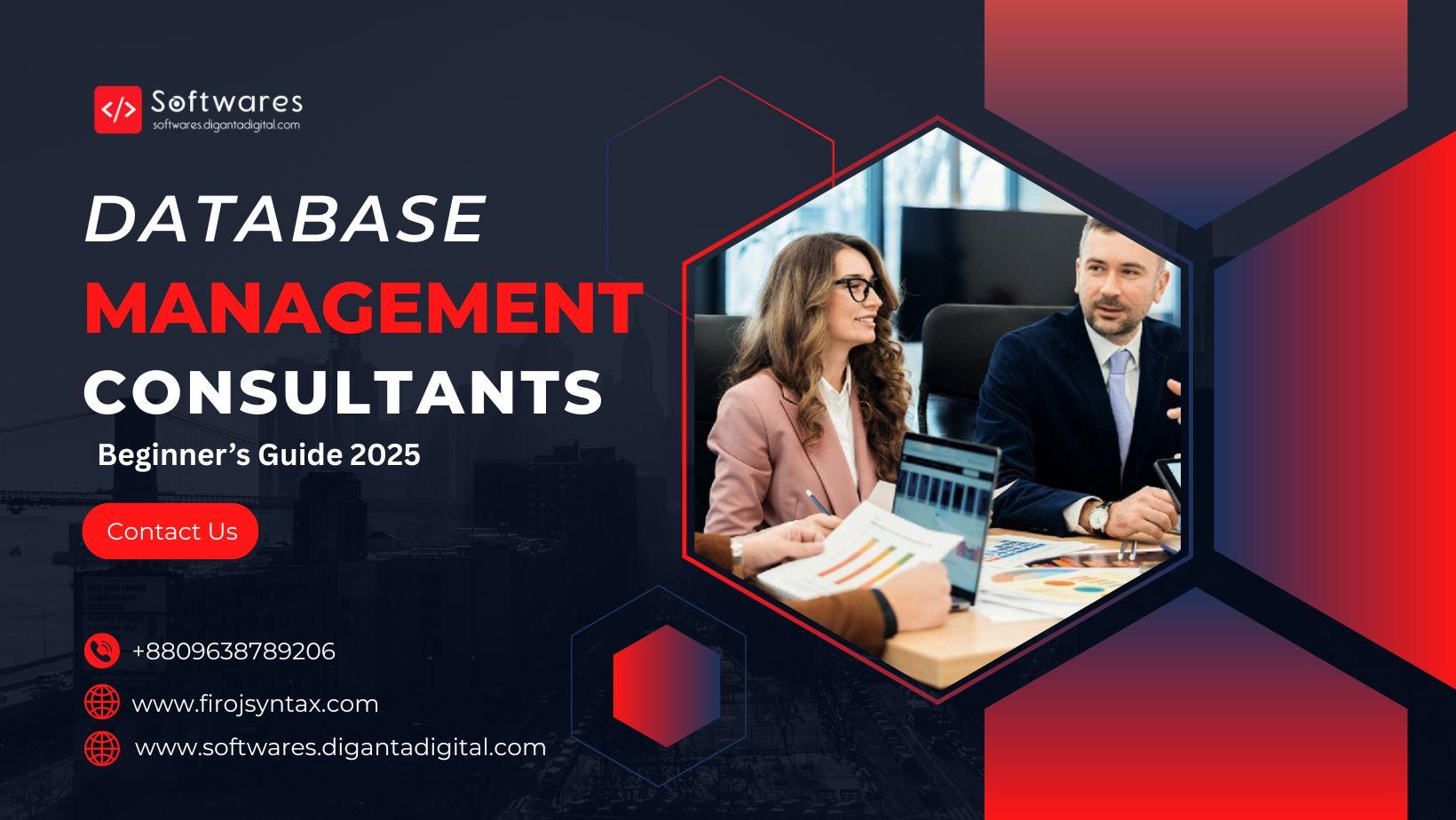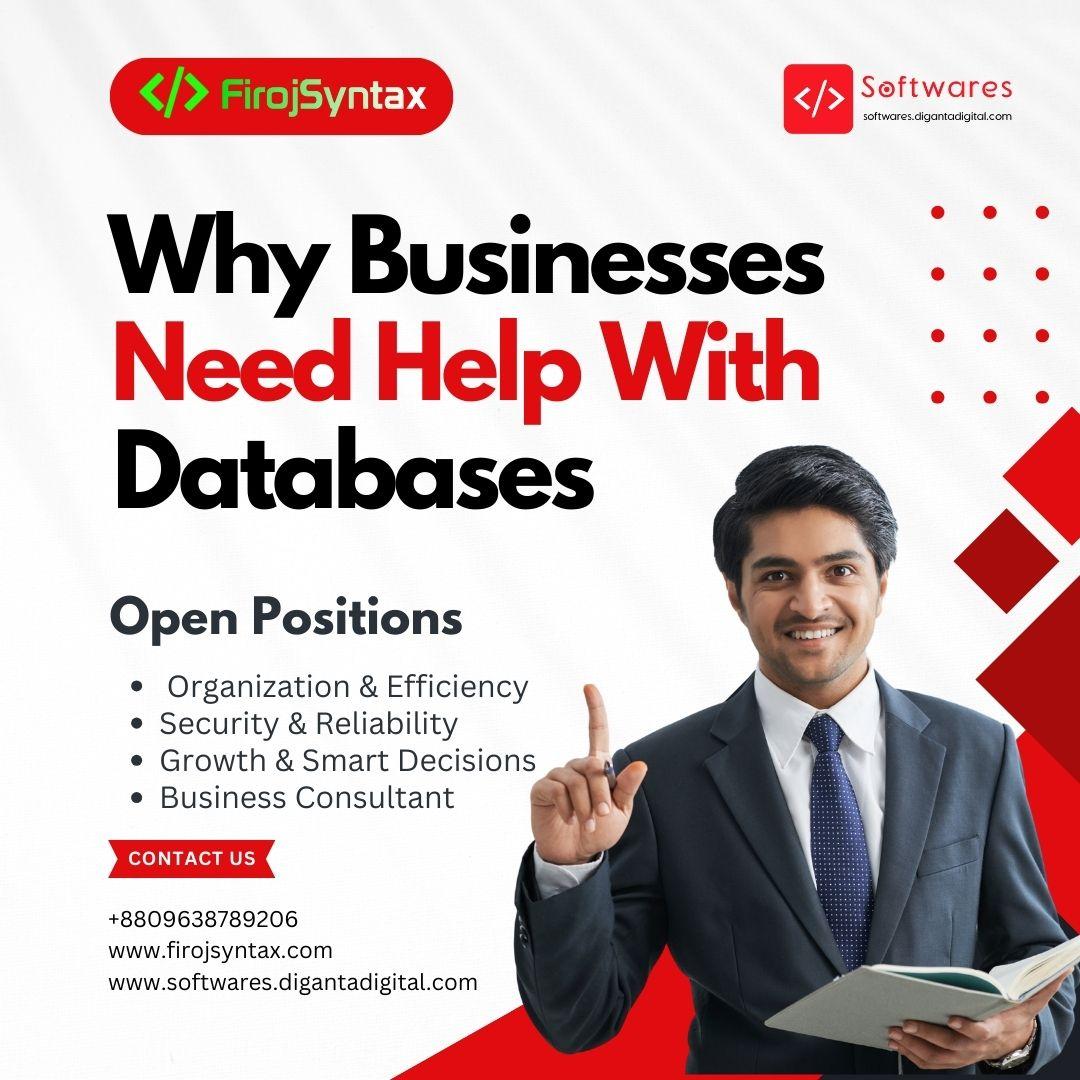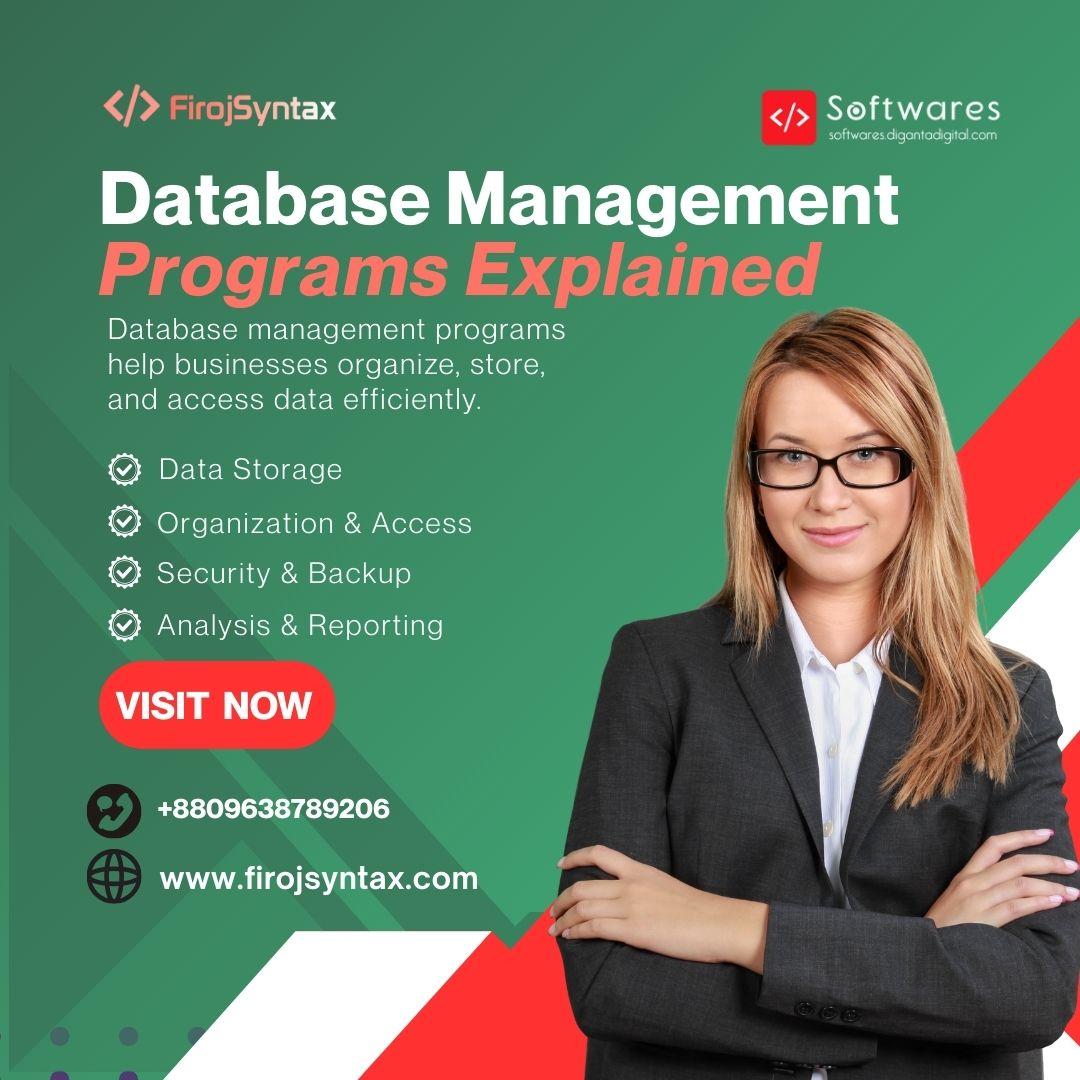Discover how database management consultants organize, protect, and optimize your data using modern tools and smart manual management solutions.

Ever noticed how a small mistake in your spreadsheet can throw off an entire report? I've seen this happen more times than I'd like to admit, and that's where database management consultants come in. They're the folks who ensure data isn't just stored but organized, protected, and useful. Expert guidance can save businesses from costly errors with the rise of modern database management tools and programs . In this guide, I'll explain what these consultants do, why they matter, and even how a smart manual database manager still plays a role. If you've ever felt like your data is running you instead of the other way around, this article is for you.
Think of database management consultants as the mechanics of the digital world. Like you'd call a trusted mechanic when your car makes a strange noise, businesses turn to these consultants when their data feels overwhelming or unreliable. Their job isn't just storing numbers in a system it's ensuring that information is neat, secure, and ready when needed.
I once helped a local shop track everything in Excel sales, inventory, even employee hours all crammed into one messy sheet. It worked until it didn't. Duplicate entries, missing numbers, and endless scrolling meant the owner spent more time fixing mistakes than running the business. A consultant stepped in, moved everything into a proper database, and suddenly, reports that once took hours could be pulled in minutes. That's the kind of transformation these experts bring.
For beginners, the biggest takeaway is this: database management consultants don't just handle technology they create peace of mind. They turn your messy digital drawer into a well-organized filing cabinet you can trust.
If you've ever lost a file when you needed it, you know the frustration of bad data management. For small businesses, it often starts with something as simple as a cluttered spreadsheet. Before long, you're facing duplicate customer records, reports that don't match, or worse important files that vanish.
The risks aren't small. A wrong sales report can cost revenue, and poorly managed customer data can hurt relationships. And let's not forget security leaving sensitive information in the wrong place is like leaving your front door unlocked.

This is where consultants shine. They step in, diagnose the problem, and set up systems that prevent chaos before it starts. Instead of putting out daily fires, you can focus on growing your business. Someone who knows the terrain makes the difference between constantly scrambling and confidently moving forward.
Now, let's talk about the toolbox. Modern database management isn't just about installing software it's about picking the right tools for the job. Popular systems like MySQL, Oracle, and Microsoft SQL Server are still widely used. Still, cloud-based platforms like Amazon RDS or Google Big Query quickly become favorites because of their flexibility.
Back then, databases were often clunky and stuck on one computer. Today, modern database management lets you scale with ease. Imagine moving from a tiny shop to an online business that serves thousands your database should grow with you, not hold you back.
Consultants play matchmaker here. They analyze your needs, budget, and growth plans and suggest the best system. The goal isn't just fancy tech it's ensuring the system serves the business. And that's where their experience really shows.
Here's where things can get confusing for beginners: database management programs. At their core, these programs are simply software that helps you create, organize, and control your data. Think of them as the engine under the hood without it, your car isn't going anywhere.
Some programs are open-source, like Postgre SQL or My SQL. They're flexible, affordable, and supported by large communities. Others, like Oracle or Microsoft SQL Server, are commercial and often come with advanced features and dedicated support. Both have pros and cons; the right choice depends on your needs.

This is where consultants come in handy again. They don't just install the program they guide you through the selection process, set it up, and teach you how to use it without feeling overwhelmed. For a beginner, that's gold.
Ever tried letting software handle everything and realized it still misses the small stuff? That's exactly why a smart manual database manager is still so important. Even with modern database management tools, there's no substitute for a human eye catching odd entries, duplicate records, or strange patterns that software might ignore.
I once worked with a small business that relied heavily on automation. The reports looked perfect on screen until a customer's order got lost because of a tiny entry error. A consultant stepped in, reviewed the data manually, and found the root cause in minutes. That's the balance: technology does the heavy lifting, while people bring the judgment and intuition. Good database management consultants understand this blend better than anyone.
Picking the right consultant can feel like hiring a mechanic you want someone who won't just fix the problem today but keep things running smoothly tomorrow. Look for experience with both database management programs and real-world problem-solving. Certifications matter, but I've found that consultants who can explain complex tools in simple terms are the ones worth trusting.
Watch out for red flags. If someone offers a "one-size-fits-all" solution without asking about your unique setup, that's a warning sign. A true expert will listen first and suggest whether you need cloud solutions, open-source tools, or traditional setups. When I hired my first consultant years ago, what impressed me most wasn't just their technical skill but how they asked the right questions before touching a single line of data.
Here's the truth: you don't hire consultants to "fix" things you hire them to save you from future headaches. They help clean up messy data, protect sensitive information, and streamline workflows. Imagine shaving hours off your weekly reporting because your data is finally in order.
The biggest benefit, though, is peace of mind. Knowing your business runs on accurate, secure data means you can focus on growth, not glitches. I've seen companies cut costs and boost profits simply by having better insights from their data. That's the power of working with database management consultants they turn raw information into smarter decisions.
You're not alone if you've ever felt buried under messy spreadsheets or confused by too many database management programs . I've been there staring at a screen, wondering if the data was helping or holding me back. That's why database management consultants are so valuable they bring clarity, structure, and confidence.
Start small. Even a conversation with a consultant can uncover gaps you didn't realize were costing you time or money. And remember, you don't have to go all-in right away. Ask questions, learn as you go, and let the experts guide you. The sooner you get control of your data, the faster your business can grow.
Q: What's the difference between modern database management and older systems?
A. Modern systems are faster, more secure, and often cloud-based. Compared to traditional setups, they make collaboration and scaling easier.
Q: Do I need a consultant, or can I manage databases myself?
A. You can start small independently, but consultants save time and prevent costly mistakes. They also help set up systems correctly from the start.
Q: What is a smart manual database manager?
A. It's the human element someone who reviews, checks for errors, and ensures automation doesn't miss critical details.
Q: How much do database management consultants cost?
A. Costs vary by project size and expertise. Some charge hourly, others by project. Consider it an investment in accuracy and security.
Q: Which database management programs are best for small businesses?
A. It depends on your needs. Open-source tools like MySQL are budget-friendly, while cloud options like AWS or Azure offer scalability. A consultant can help you choose the right fit.
Your email address will not be published. Required fields are marked *